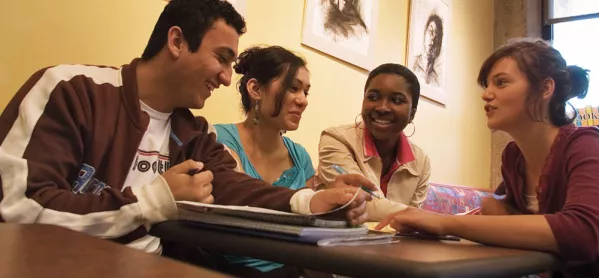University admissions body Ucas today released a vast new set of data on the 132 biggest universities in the UK, looking at offer and entry rates for 18-year-olds applying from this country. It is the first time it has released this data by institution, rather than at a national level.
The figures break down the universities’ offers by candidate gender, ethnicity and social background, taking into account key factors such as predicted grades and course choice. The data allows for comparisons of fairness in admissions between the universities.
The publication today comes as the government is pushing universities to conduct a controversial “name-blind” application process to reduce unconscious bias in the admissions process.
The new data yields several intriguing findings, including:
- White school leavers are now under-represented in “nearly half” of UK universities. Ucas found that - in 58 out of the 132 universities studied - fewer white 18-year-olds entered undergraduate courses than would be expected in that age group as a whole;
- Very low numbers of black students are being accepted to some of the most prestigious institutions. At the University of Oxford, just 35 black 18-year-olds living in the UK were admitted in 2015 out of a total of 2,210 students in the cohort. However, this was a significant improvement on the 15 who entered in 2010. A spokeswoman for Oxford stressed that although numbers were low, the offer rates for black applicants were in line with what might be expected given applicants’ predicted grades;
- Figures were similar at the University of Cambridge, which admitted just 30 black 18-year-olds in 2015, also up from 15 in 2010. Cambridge insisted that admissions decisions were based on “academic considerations alone”;
- Women are more likely to enter than men at nearly 90 per cent of universities. There was a 7.7 per cent increase in male applicants placed between 2010 and 2015, compared with a rise of more than 12.5 per cent in female applicants placed - showing a steadily widening gap;
- Men applying to Oxford were 3 per cent more likely to attend the university in 2015 than female applicants, while the likelihood of men and women being placed at Cambridge was almost equal;
- Ucas says that the data - which gives offer rates controlled for factors such as predicted grades and the competitiveness of courses being applied for - show that universities’ admissions processes are “broadly fair”;
- Despite Ucas’ positive spin on the statistics, Sir Peter Lampl, chairman of the social mobility charity the Sutton Trust, is not happy. He said it was “seriously concerning” that there was still “such a strong correlation between your background and your chance of getting an offer”, particularly at leading universities:
- Professor Les Ebdon, director of fair access watchdog Offa, said the data was a “real step forward for widening access”. He said: “Some universities will clearly be very challenged by this data, and I expect them to work hard to understand the discrepancies between applications and offers made for certain groups.”
Want to keep up with the latest education news and opinion? Follow TES on Twitter and like TES on Facebook




